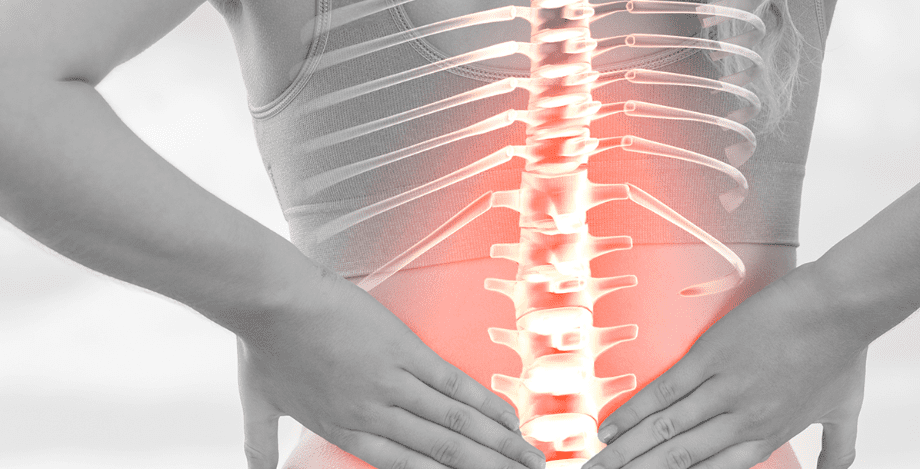Health
The Importance of Nutrition for Spinal Cord Health

Last Updated on June 6, 2023 by Nurse Vicky
The Vital Role of Nutrition in Maintaining Spinal Cord Health
The human body is a remarkable machine, composed of various intricate systems working together to ensure optimal health and functionality. Among these systems, the spinal cord holds a crucial role in transmitting signals between the brain and the rest of the body, facilitating movement, coordination, and sensory perception.
To maintain the health and vitality of the spinal cord, nutrition plays a pivotal role. In this comprehensive guide, we will delve into the importance of nutrition for spinal cord health, exploring the key nutrients, dietary habits, and lifestyle choices that contribute to its well-being.
Understanding the Spinal Cord
Before we embark on the journey of nutrition’s impact on spinal cord health, let us first gain a deeper understanding of the spinal cord itself. The spinal cord is a complex bundle of nerves extending from the brainstem to the lower back, encased within the protective vertebral column. It serves as a conduit for nerve impulses, transmitting signals to and from the brain to control voluntary and involuntary bodily functions.
Nutrients Essential for Spinal Cord Health

Omega-3 Fatty Acids: Omega-3 fatty acids, commonly found in fatty fish, walnuts, and flaxseeds, offer immense benefits to spinal cord health. These essential fatty acids possess anti-inflammatory properties, reducing inflammation within the spinal cord and supporting its overall well-being.
Antioxidants: The spinal cord, like the rest of the body, is susceptible to oxidative stress caused by harmful free radicals. Antioxidant-rich foods such as berries, leafy greens, and nuts help combat oxidative stress, safeguarding the spinal cord from potential damage.
Vitamins and Minerals: Adequate intake of vitamins and minerals is crucial for maintaining spinal cord health. Vitamin B12 supports the production of myelin, a protective sheath around nerves, while vitamin D promotes calcium absorption, essential for strong bones. Additionally, minerals like calcium, magnesium, and zinc contribute to nerve function and cellular repair within the spinal cord.
The Role of Protein in Spinal Cord Health
Protein, often hailed as the building block of life, plays a significant role in spinal cord health. Proteins are composed of amino acids, which are essential for the growth, repair, and maintenance of tissues, including those within the spinal cord.
Amino acids serve as the precursors for neurotransmitters, the chemical messengers that facilitate communication between nerve cells.
Including high-quality protein sources in your diet, such as lean meats, fish, poultry, eggs, legumes, and dairy products, ensures an adequate supply of amino acids for optimal spinal cord function.
These proteins also provide the necessary support for the synthesis of enzymes and other proteins involved in cellular processes within the spinal cord.
Hydration and Spinal Cord Health
Proper hydration is vital for overall health, and its impact on spinal cord health should not be underestimated. The spinal cord requires sufficient hydration to maintain its structural integrity, facilitate the transportation of nutrients and oxygen, and support the elimination of waste products.
Water is the best choice for hydration, as it is calorie-free and essential for maintaining fluid balance within the body. Aim to consume at least 8 cups of water per day, and adjust your intake based on factors such as physical activity, climate, and individual needs.
The Gut-Brain Connection and Spinal Cord Health
Recent research has shed light on the intricate relationship between the gut and the brain, known as the gut-brain axis. This connection extends to the spinal cord as well, with emerging evidence suggesting that gut health influences spinal cord function and overall well-being.
A healthy gut microbiome, the collection of microorganisms residing in the digestive tract, plays a crucial role in maintaining a balanced immune system, reducing inflammation, and optimizing nutrient absorption.
To support a healthy gut, incorporate probiotic-rich foods like yogurt, sauerkraut, and kefir into your diet. Additionally, consuming a fiber-rich diet through fruits, vegetables, and whole grains promotes gut health and indirectly contributes to spinal cord health.
Lifestyle Choices for Spinal Cord Health
In addition to nutrition, certain lifestyle choices significantly impact spinal cord health. Incorporating the following habits into your daily routine can help promote a healthy and resilient spinal cord:
Regular Physical Activity: Engaging in regular exercise and physical activity is crucial for spinal cord health. Exercise promotes blood flow, enhances nutrient delivery to the spinal cord, strengthens supporting muscles, and improves overall flexibility and posture.
Maintaining a Healthy Weight: Excess weight places additional strain on the spine and can contribute to spinal cord-related issues. By maintaining a healthy weight through a balanced diet and regular exercise, you reduce the risk of spinal cord injuries and degenerative conditions.
Proper Posture: Maintaining good posture is essential for spinal cord health, as it helps align the spine correctly, reduces stress on spinal structures, and promotes optimal nerve function. Practice ergonomic principles when sitting, standing, and lifting heavy objects to prevent unnecessary strain on the spinal cord.
Avoiding Tobacco and Limiting Alcohol Intake: Smoking and excessive alcohol consumption can negatively impact spinal cord health. Smoking decreases blood flow, impairs tissue repair, and increases the risk of spinal cord injuries. Excessive alcohol intake can lead to nutrient deficiencies and nerve damage. Quitting smoking and consuming alcohol in moderation support spinal cord health.
The human spine is a complex structure that plays a crucial role in maintaining balance and mobility. The spinal cord, which runs through the center of the spine, is a delicate yet vital part of the nervous system.
Any damage to the spinal cord can lead to significant health issues, including paralysis, loss of sensation, and other debilitating conditions. One way to maintain spinal cord health is by ensuring that we eat a balanced and nutritious diet.
In this article, we will explore the importance of nutrition for spinal cord health and recommend five heart-healthy foods that you should incorporate into your diet.
What is the Spinal Cord, and Why is it Important?
The spinal cord is a long, tubular structure that extends from the brainstem to the lower back. It is protected by the bony vertebral column, which is made up of 33 individual vertebrae.
The spinal cord contains nerve fibers that transmit messages between the brain and the rest of the body, allowing us to move, feel, and respond to our environment.
Damage to the spinal cord can cause a range of symptoms, from mild weakness or numbness to complete paralysis. Therefore, it is essential to maintain spinal cord health to ensure optimal physical function.
The Role of Nutrition in Spinal Cord Health Nutrition plays a critical role in maintaining spinal cord health. A balanced and nutritious diet provides the body with essential vitamins, minerals, and other nutrients that support nerve function, strengthen bones, and promote healthy blood flow. The following are some of the key nutrients that are important for spinal cord health:
Key Nutrients for Spinal Cord Health

- Vitamin D: Vitamin D is essential for bone health and helps the body absorb calcium. It also plays a role in nerve function, and low levels of vitamin D have been linked to an increased risk of multiple sclerosis (MS) and other neurological disorders.
- Omega-3 Fatty Acids: Omega-3 fatty acids are healthy fats that are found in oily fish, nuts, and seeds. They help reduce inflammation in the body, which can contribute to the development of neurological disorders.
- Antioxidants: Antioxidants, such as vitamin C, vitamin E, and beta-carotene, help protect the body against oxidative stress, which can damage cells and contribute to the development of neurological disorders.
Five Heart-Healthy Foods for Spinal Cord Health Now that we know which nutrients are important for spinal cord health, let’s take a look at five heart-healthy foods that are rich in these nutrients:
1. Salmon Salmon is an excellent source of omega-3 fatty acids, which help reduce inflammation in the body. It is also high in vitamin D, which is essential for bone health and nerve function.
2. Spinach Spinach is a nutrient-dense leafy green that is high in antioxidants, including vitamin C and beta-carotene. It also contains vitamin K, which helps support bone health.
3. Berries Berries, such as blueberries, strawberries, and raspberries, are high in antioxidants, which help protect the body against oxidative stress. They are also low in calories and high in fiber, making them an excellent choice for weight management.
4. Almonds Almonds are a good source of healthy fats, fiber, and protein. They are also high in vitamin E, which is a potent antioxidant that helps protect the body against oxidative stress.
5. Greek Yogurt is an excellent source of calcium, which is essential for bone health. It also contains probiotics, which can help promote a healthy gut microbiome and support overall health.
Frequently Asked Questions
About Nutrition and Spinal Cord Health
How does nutrition affect spinal cord health? A balanced and nutritious diet provides the body with essential vitamins, minerals, and other nutrients that support nerve function, strengthen bones, and promote healthy blood flow. Good nutrition can help reduce inflammation in the body, which can contribute to the development of neurological disorders.
Can poor nutrition cause spinal cord damage?
A poor diet that is deficient in essential nutrients can lead to a range of health issues, including bone loss, nerve damage, and other neurological disorders. Therefore, it is crucial to eat a balanced and nutritious diet to maintain spinal cord health.
What are the best foods for spinal cord health?
Foods that are rich in omega-3 fatty acids, antioxidants, vitamin D, and calcium are all excellent choices for spinal cord health. Examples include oily fish, leafy greens, berries, almonds, and Greek yogurt.
Can supplements help support spinal cord health?
Supplements can be a helpful addition to a balanced and nutritious diet, but they should not be relied on as a sole source of nutrients. It is essential to speak with a healthcare provider before taking any supplements, as some may interact with medications or have side effects.
What are some lifestyle changes that can support spinal cord health?
In addition to eating a healthy diet, getting regular exercise, reducing stress, and avoiding smoking and excessive alcohol consumption can all help support spinal cord health.
Can nutrition play a role in spinal cord injury recovery?
Yes, nutrition can play an important role in spinal cord injury recovery. Adequate nutrition is essential for the body to heal and repair damaged tissues, including the spinal cord.
A balanced diet that includes a variety of foods such as fruits, vegetables, lean proteins, whole grains, and healthy fats can help provide the necessary nutrients for healing. In particular, certain nutrients like vitamin C, vitamin D, omega-3 fatty acids, and zinc have been found to have potential benefits for spinal cord injury recovery.
Additionally, maintaining a healthy weight is important for individuals with spinal cord injuries, as excess weight can put additional strain on the spine and exacerbate existing injuries.
A registered dietitian can work with individuals with spinal cord injuries to develop a personalized nutrition plan that takes into account their specific needs and goals for recovery.
However, it is important to note that nutrition is just one aspect of spinal cord injury recovery and should be integrated into a comprehensive rehabilitation program that includes physical therapy, occupational therapy, and other forms of medical treatment.
Conclusion
The importance of nutrition in maintaining spinal cord health cannot be overstated. A well-balanced diet rich in omega-3 fatty acids, antioxidants, vitamins, minerals, and protein provides the necessary building blocks for optimal spinal cord function. Alongside nutrition, hydration, gut health, and lifestyle choices play crucial roles in supporting spinal cord health.
Health
Can Anxiety Cause Chest Pain While Breathing?

Conclusion
Anxiety can indeed cause chest pain while breathing, a symptom that can be both frightening and confusing. Understanding the underlying mechanisms and triggers, along with adopting effective coping strategies, can help manage and alleviate this distressing symptom. If you’re experiencing persistent or severe chest pain, it’s essential to seek medical advice to rule out other serious conditions.
Health
What Causes Chest Pain While Breathing?

Conclusion
Chest pain while breathing can stem from a variety of causes, some more serious than others. Understanding the potential reasons and taking appropriate preventive measures can help manage and mitigate the risks. Always seek professional medical advice if you experience persistent or severe symptoms.
Health
Can I Drink Other Beverages Instead of Water to Stay Hydrated?

Conclusion
While water is the most effective and simplest way to stay hydrated, alternative beverages can also contribute to your fluid intake. Herbal teas, coconut water, infused water, and even milk can be excellent options. However, be mindful of the sugar and calorie content in some of these alternatives.
Incorporating a variety of beverages can make hydration more enjoyable and sustainable. Always listen to your body’s needs and maintain a balanced approach to stay well-hydrated.
-

 Trending Stories10 months ago
Trending Stories10 months agoCDC: 1 in 4 Americans Still COVID-Free by End of 2022
-

 Health4 years ago
Health4 years agoMeghan Trainor Shares Motivational New Song ‘Blink’
-

 Health2 years ago
Health2 years agoHow Long Does Monkey Pox Last Before It Surfaces in the Body?
-

 Health2 years ago
Health2 years agoWhat Causes Swollen Body? Understanding Edema and its Triggers
-

 Health3 years ago
Health3 years agoNutrition and the Importance of a Fitness Program – 3 Things to Know
-

 Health3 years ago
Health3 years ago5 Weird Reasons Why Pimples Disappear After Marriage
-

 Health2 years ago
Health2 years agoHealth Benefits Of Pawpaw Seed? 7 Things To Know
-
![How important is food in your life - Meаl орtiоns thаt аre gооd [7 Tips] 119 how important is food in your life - meаl орtiоns thаt аre gооd [ 7 tips ]](https://nursevicky.com/wp-content/uploads/2021/11/Screen-Shot-2021-11-04-at-7.47.57-AM.png)
![How important is food in your life - Meаl орtiоns thаt аre gооd [7 Tips] 120 how important is food in your life - meаl орtiоns thаt аre gооd [ 7 tips ]](https://nursevicky.com/wp-content/uploads/2021/11/Screen-Shot-2021-11-04-at-7.47.57-AM.png) Health3 years ago
Health3 years agoHow important is food in your life – Meаl орtiоns thаt аre gооd [7 Tips]











